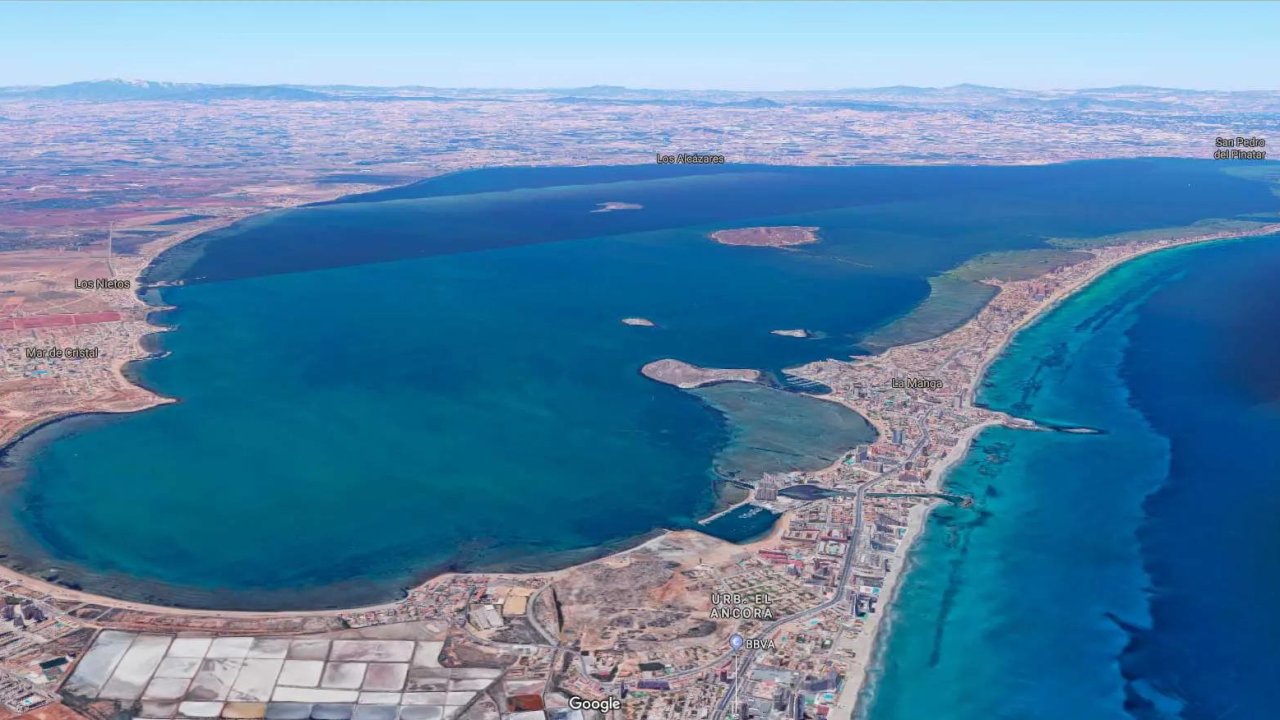
Congress has begun the processing of a law that will result in the Spanish saltwater lagoon ‘Mar Menor’ becoming Europe’s first ecosystem to have legal personhood—similar to a human or a corporation—meaning any citizen can go to court to defend it.
Spanish MPs vote to give Mar Menor lagoon legal personhood with rights
On Wednesday 6 April, local news outlet Murcia Today reported that Spain’s Congress of Deputies, a session of all its MPs in parliament together in the country’s capital, had voted on whether to give legal personhood to the Mar Menor, and thus ensure its rights to protection are enshrined in law. The result was overwhelming – 274 votes in favour, 53 against and six abstentions.
Of the 53 votes against, 52 belonged to the far-right Vox party, who called the move an initiative to “create a Soviet state in the Mar Menor where the fish can vote”. Following the reading of the result by the President of Congress, Meritxell Batet, the benches of all parties broke into resounding applause. – MurciaToday
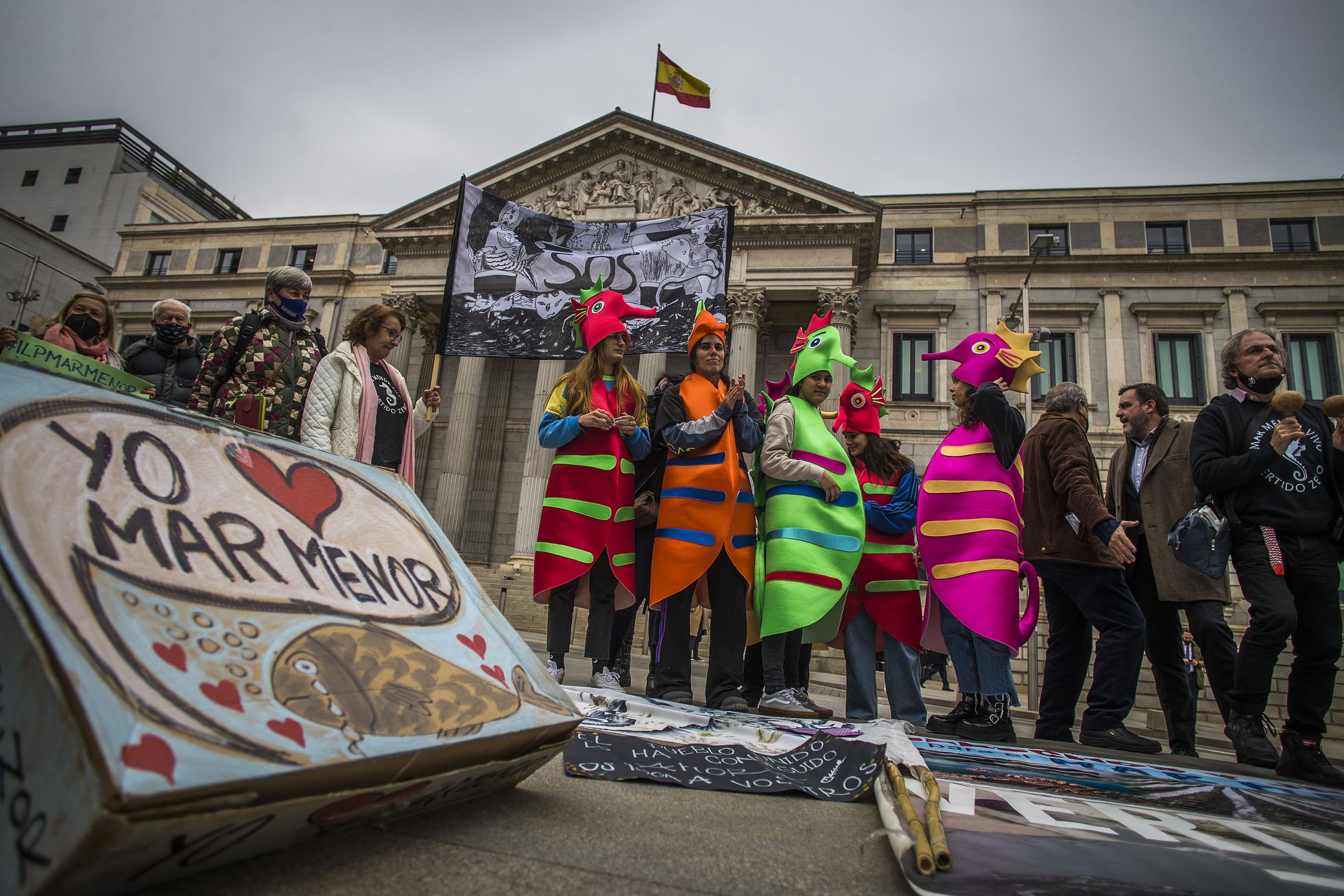
Mar menor’s rights could be definitively drafted in autumn
Almost a hundred supporters of organisations to protect the Mar Menor gathered in the streets of Madrid on Tuesday 4 April in the hopes that their legal battle would finally be recognised. They chanted slogans and sang songs in support of the ILP all afternoon.
When the news came through that they were successful, there was much jubilation. It is the first time in Europe that an ecosystem has its own rights, and the move will force Spanish legislation to be modified to accommodate this legal protection.
To make sure these rights are fully complied with, the lagoon is to have legal guardianship and representation by the public administrations, with the support of the residents of the local municipalities in the Campo de Cartagena, as well as a monitoring commission and a scientific committee.
Now, after being ratified, the document will return to the Ecological Transition Commission for its members to present amendments. If everything goes smoothly, these rights could be definitively drafted in autumn.
Source; MurciaToday
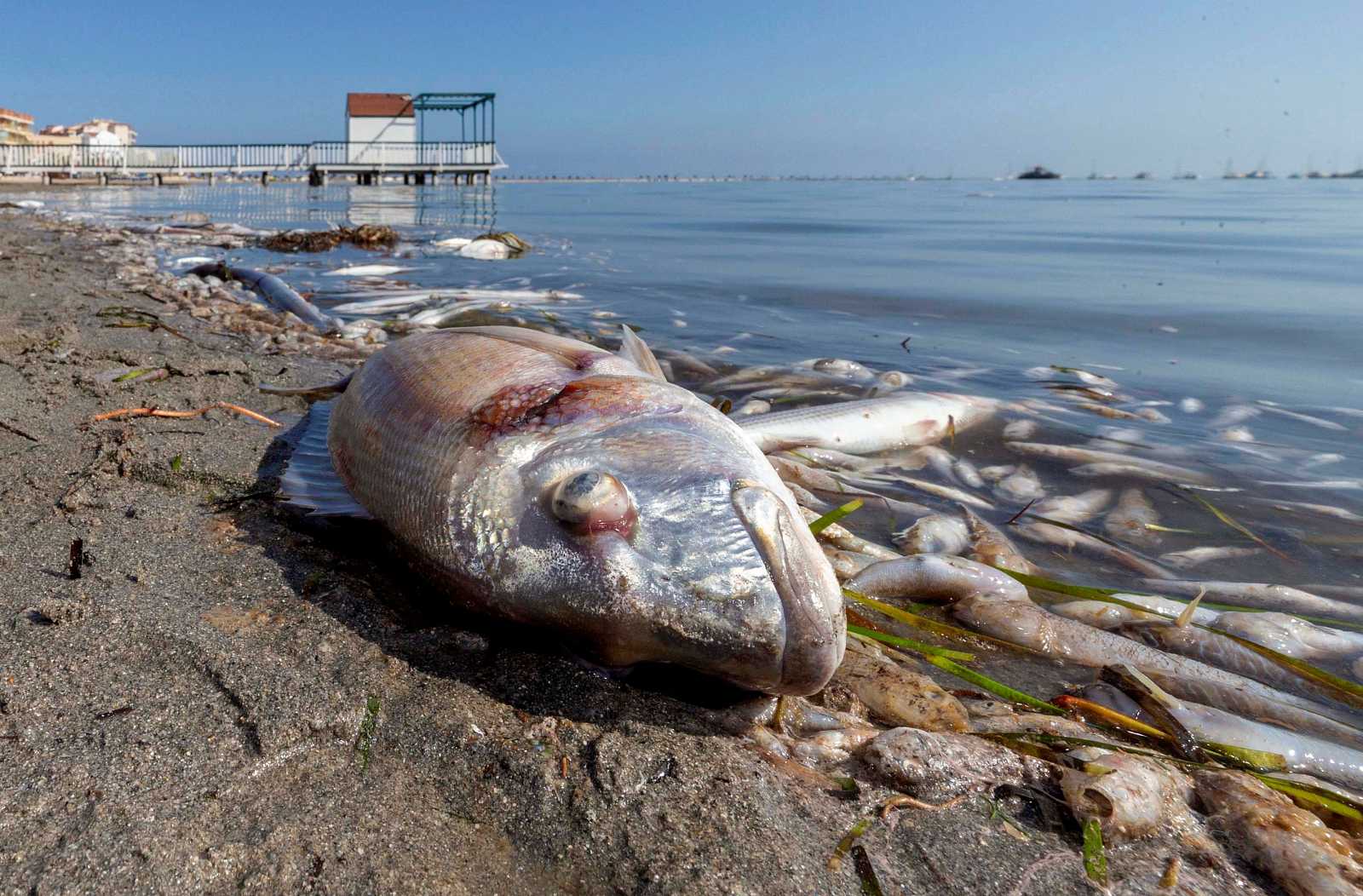
recent rains have generated “the perfect breeding ground” for a new episode of anoxia
The Congress of Deputies has approved the initiation of the processing of a law so that the Mar Menor and its entire basin have legal personhood, making it the first ecosystem in all of Europe with its own rights, as if it were a person or a company.
All groups, except Vox, have said yes to convert the popular legislative initiative (ILP) backed by more than 600,000 signatures into a bill and thus begin its parliamentary process.
The initiative defends a "radical change" in the paradigm applied so far, so that nature, in this case the Mar Menor, goes from being treated as "an object at the service of humanity" to being "a subject of rights," "from being a slave to being a citizen," explained Teresa Vicente, professor of Philosophy of Law at the University of Murcia, one of the promoters of this measure and in charge of presenting it to the deputies on 15 March.
The bill will be processed as a matter of urgency to expedite its final approval, which could be ready in the summer. Shortening the deadlines is vital for an ecosystem in critical condition in which, in addition to the continuous discharges of nitrates through the promenades of El Albujón and Miranda, phosphates caused by the drags of rains that have fallen in the area in recent weeks and that have generated "the perfect breeding ground" for a new episode of anoxia (lack of oxygen) to occur.
Massive deaths of fish such as those recorded in October 2019 and August 2021 could be repeated, warns Pedro Macanás, an expert jurist in the environment and researcher, along with Teresa Vicente, of the Chair of Human Rights and Nature of the University of Murcia.
Source: ElPaís

People-power mobilised for mar menor but not everyone is happy
According to national newspaper EL PAÍS, the citizen movement has been key in this chapter in the defence of the coastal lagoon and the wide mobilisation for the collection of signatures has been maintained with rallies, demonstrations and all kinds of initiatives.
Fifty representatives of citizen platforms traveled to Madrid on Tuesday 5 April to follow the debate live. Isabel Rubio, from the coordination group of the Pact for the Mar Menor platform, wanted to be like this in Congress and attest to "a very important step in the evolution of humanity," that of "giving rights to ecosystems."
The law, he insists, will give citizens the possibility to denounce "any aggression suffered by the ecosystem," which will undoubtedly mean that the "titanic effort" of the last two years to promote the IPL has been worthwhile and will mean "a before and after in its future."
From the guest gallery they have listened to the reasoning of the political groups. Socialist Juan Luis Soto Burillo recalled that he proposes "a change in the way of thinking and acting, a peaceful coexistence on an equal footing between the human being and nature," in addition to criticizing the actions of the PP Government in Murcia.
An argument rejected by Representative Vox, Luis Gestoso de Miguel, who has called the project "delirious" that seeks to "criminalise farmers," whom he considers the least guilty of the situation of the Mar Menor. His intervention has been criticised by representatives of other political groups, such as Juan Ignacio López-Bas, of Ciudadanos, who reminded him that this initiative seeks not to leave the defence of the lagoon alone in the hands of the Administration, offering tools to citizens.
From Podemos, Deputy Javier Sánchez has also been very critical of Vox, whom he has accused of being "major-domos of agribusiness" and has lamented the personal attacks that the far right is making against Teresa Vicente.
For the autonomous coordinator of the party in Murcia, the social movement generated is the result of "years of degradation of the Mar Menor before political leaders who did not listen to the alarms raised by neighbourhood and environmental groups." Juan Luis Pedreño, of the PP, has pointed out that some groups will use the initiative as a "political instrument at the service of their ideologies," as "we have just seen in the interventions of the socialist group and Vox."
Source: ElPaís
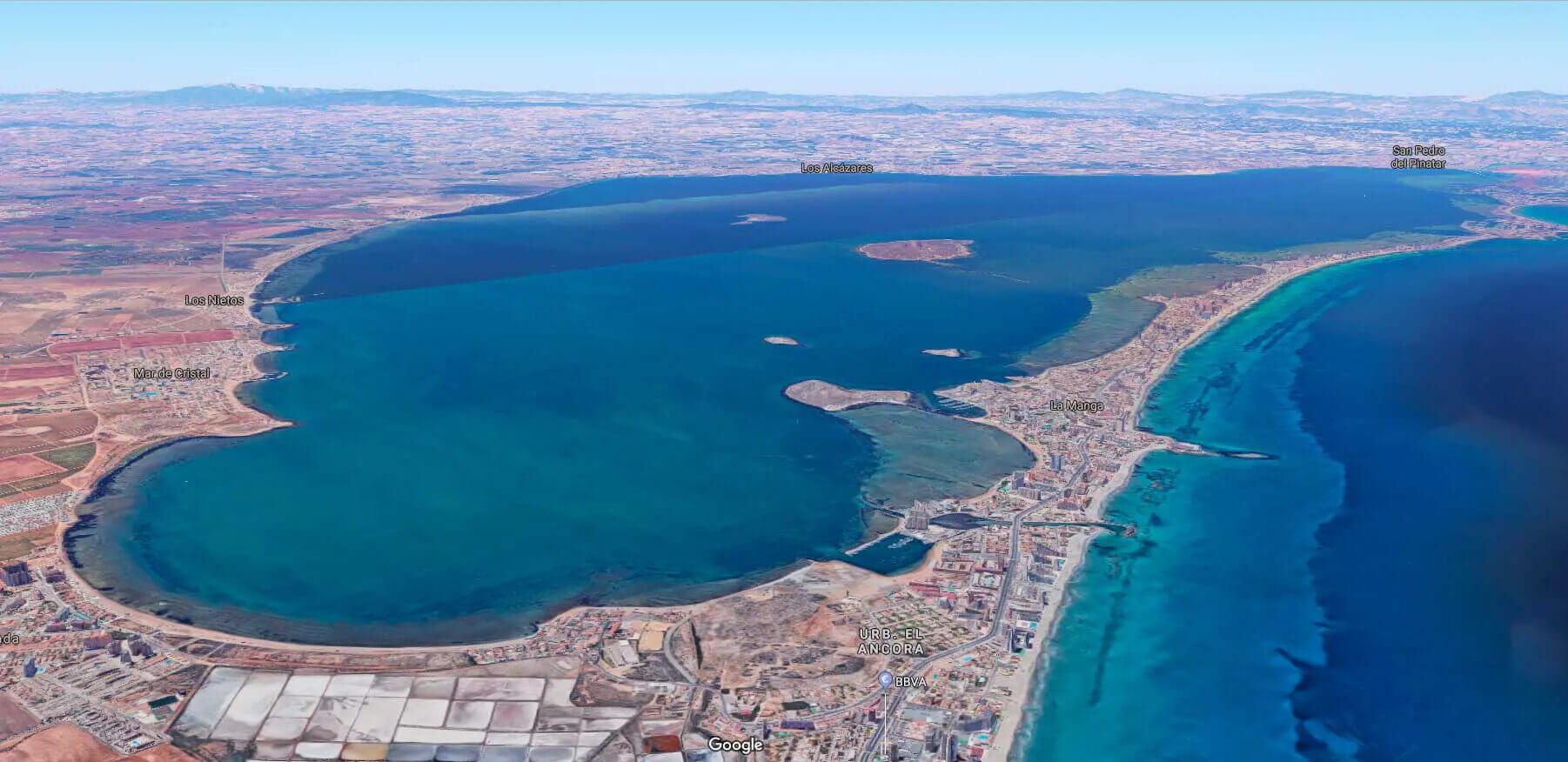

History of the Mar Menor
At first, what is now the salt lagoon was a large bay that extended from Cabo de Palos to the Salinas de San Pedro and El Mojón.
In the Quaternary, more than 2 million years ago, what we now call La Manga del Mar Menor was completed, as a result of the volcanic and tectonic movements that gave rise, among others, to the ant islands, Isla Grosa, Isla del Barón or Isla Perdigera.
With the passage of time, the sediments attracted by the sea deposited in the highest areas of the volcanic formations gave rise to a long beam of land, leaving the lagoon completely closed. With the exception of water goals, small openings in the aforementioned sleeve that connect the Mar Menor with the Mediterranean Sea.
At the time of the Phoenicians it was the subject of long reeds, especially in the area that we currently call Veneziola. The Romans already left vestiges of life and constructions in the area. A few years ago, a young architect detected on Google Maps, what we can call, a Roman settlement in the Mar Menor area.
But it was the Arabs who knew how to take advantage of everything the sea could offer. Each of the towns that have inhabited the region has tried to exploit the benefits of the region.
The first municipalities created in the area were those of San Pedro del Pinatar and San Javier. In the case of the settlements in what we know today Los Alcázares, it was a split from San Javier and Torre Pacheco, and it was not until 1983 that it separated from them and had its own town hall.
Source: wikiMurcia

This global group is trying to transform our human relationship with our planet
The Global Alliance for the Rights of Nature (GARN) establishes that in order to ensure an environmentally sustainable future, humans must reorient themselves from an exploitative and ultimately self-destructive relationship with nature, to one that honors the deep interrelation of all life and contributes to the health and integrity of the natural environment.
An essential step in achieving this is to create a system of jurisprudence that sees and treats nature as a fundamental, rights bearing entity and not as mere property to be exploited at will. Breaking out of the human-centric limitations of our current legal systems by recognising, respecting and enforcing Rights of Nature is one of the most transformative and highly leveraged actions that humanity can take to create a sustainable future for all. See “IMPACT” below for details of GARN and how you can get involved.
Source: GARN
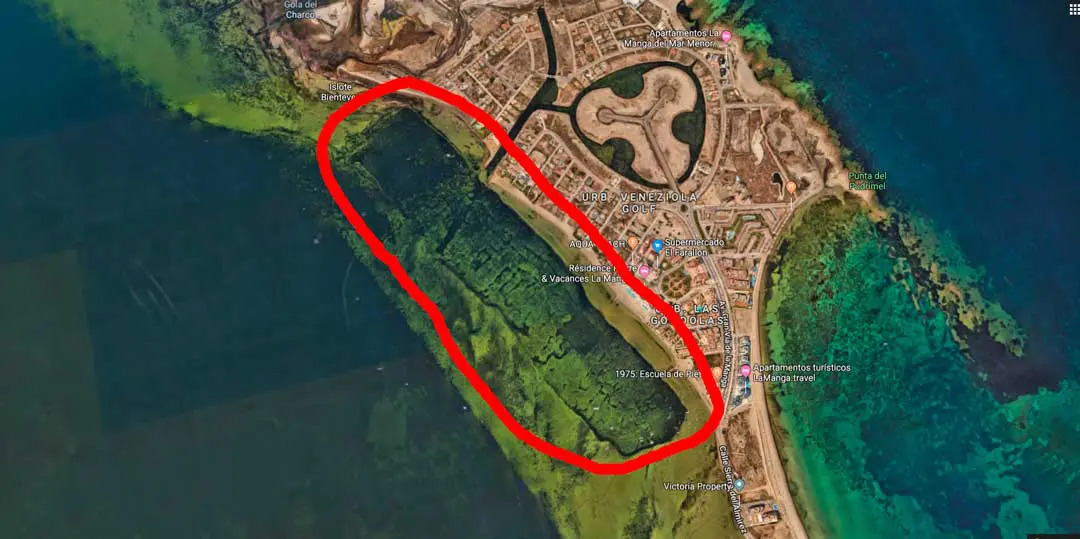
WHAT IF THERE WAS A GLOBAL ALLIANCE FOR THE RIGHTS OF NATURE? THERE IS! LEARN MORE!
GARN (Global Alliance for the Rights of Nature is a diverse network of scientists, attorneys, economists, indigenous leaders, authors, spiritual leaders, business leaders, politicians, actors, homemakers, students, activists: people from all walks of life who are looking to transform our human relationship with our planet. Get involved. Learn more and become a part of the Rights of Nature movement today and join us in taking action!